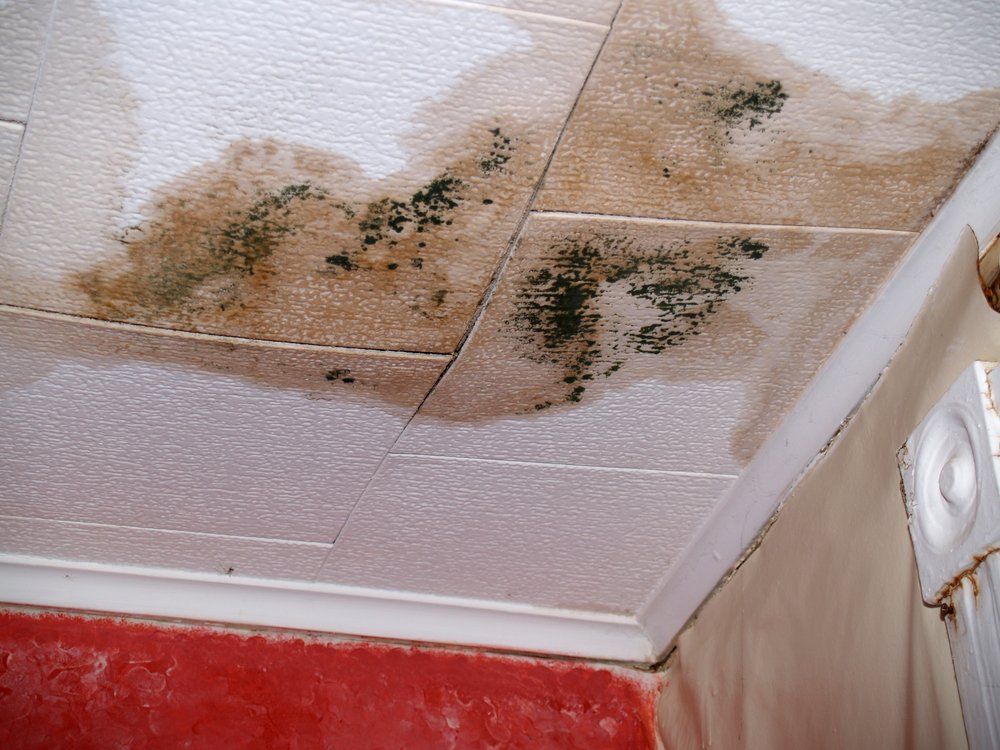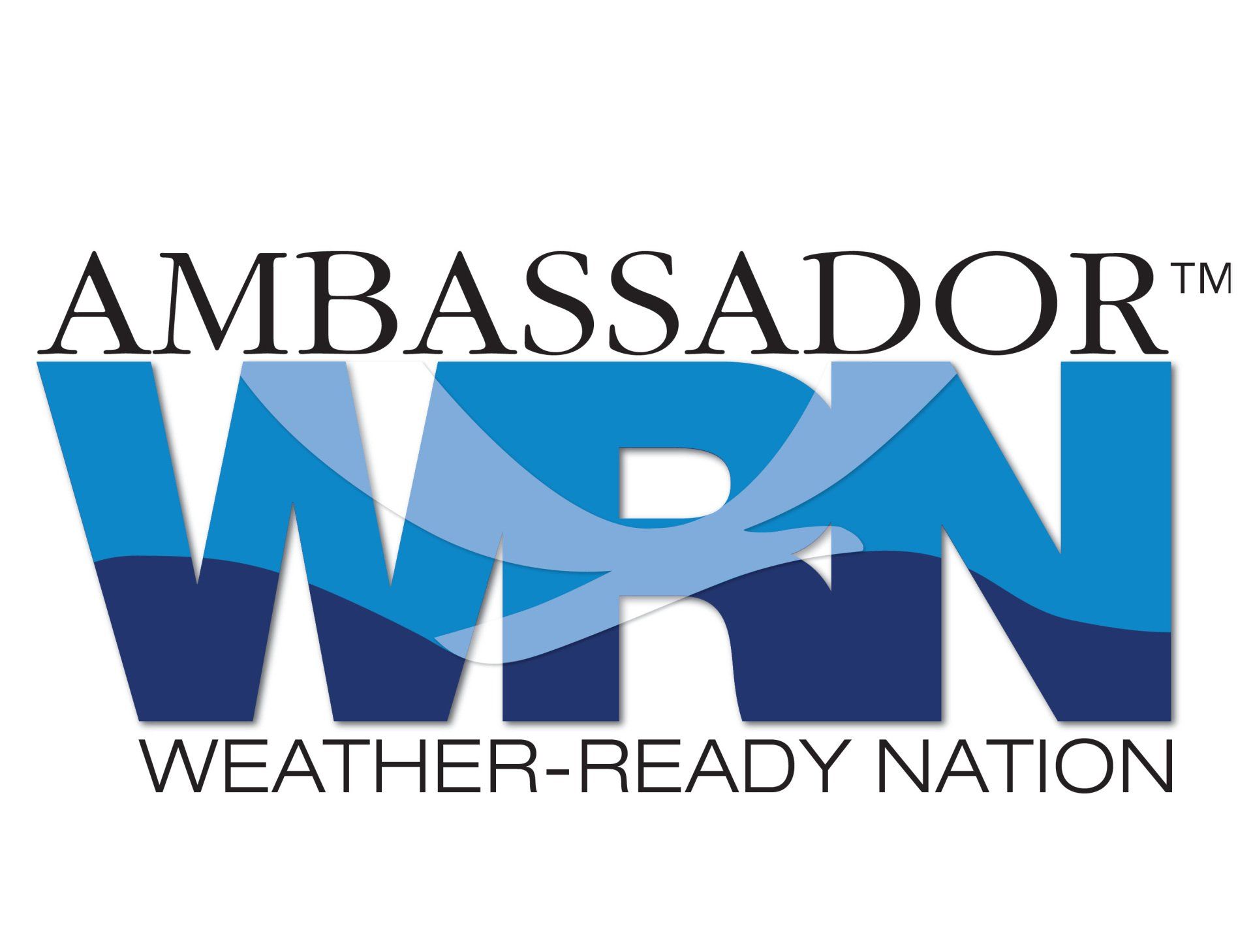Blog - Restoration 1 of Western Wayne County
CONTACT US TODAY
Basement Flood Damage and What Causes It
- By Thrive Team
- •
- 16 Mar, 2021
- •

Sometimes, even without a natural disaster, you can still face disastrous basement flood damage. As you can imagine, water leaks can cause a lot of water damage and a large amount of waste. Therefore, it's essential to be aware of the many ways you can prevent water damage in your home or business.
According to the statistics, 14,000 people in the US experience a water damage emergency at home or work each day, and 98% of basements in the US will suffer from some water damage during their lifetime. Let's take a look at what can cause basement flood damage in your Western Wayne County residence:
Top Causes of Basement Flooding
Sump pump failure: If your surrounding ground has a lot of water, it is essential to have a sump pump in your basement. These pumps move water out and away from the basement. Set up a regular maintenance schedule for this equipment.
Water heater issues: Regular maintenance and monitoring of utility appliances are essential for operating effectively and preventing potential water leaks.
Basement sealing: The basement tiles and foundation need to be adequately sealed when a home is built. Eventually, this can deteriorate over time, and water will begin to seep into the basement from the ground.
Irrigation: The underground pipes for irrigation systems can leak. Keep an eye on your system, and don't place it too close to the foundation of your home.
As you can see, regularly maintaining and monitoring your water-related appliances, pipes, and areas prone to water damage is vital to prevent basement flood damage and plumbing water damage.
And if it's too late for that, and you are facing basement flood damage, it's a good idea to have the experts at Restoration 1 of Western Wayne County check things out. With just one call, any time of the day or night, they will assess and tackle the basement flood damage as soon as possible to help you get your life back to normal.
Contact The Professionals
Remember, water damage is a job for professionals. Although you may think you can handle some water damage on your own, the restoration experts use professional equipment to prevent mold growth and other adverse effects of water damage. Plus, we also know to look for possible structural issues that may have come about due to water damage. There is no substitute for professional restoration experts.
If you have any questions about water damage restoration and flood damage cleanup, please contact us 24/7 at Restoration 1 of Western Wayne County.
According to the statistics, 14,000 people in the US experience a water damage emergency at home or work each day, and 98% of basements in the US will suffer from some water damage during their lifetime. Let's take a look at what can cause basement flood damage in your Western Wayne County residence:
Top Causes of Basement Flooding
- Clogged gutters: Ensure your gutters are free from leaves and debris, especially during the rainy season, and that they dispense the water at least 6-10 feet away from your home.
- Storm sewer blockage: If the pipes that carry away stormwater become obstructed with debris, you will more than likely experience a backup. Call the city to clear the debris as soon as possible.
- Grading: Your land should slope 6 inches downwards within the first 10 feet of your home. Recontour the soil around your house if necessary, so water is carried away from your home in severe rain.
- Septic tank blockage or failure: If your septic system is blocked, it could send greywater into your home. And a failed septic pump can also result in greywater overflow.
- Insufficient foundation drainage: Gutters are not enough to protect your home from rainwater getting in, and most properties will have foundation drainage, too. Ensure your foundation drainage, such as French drain or perimeter drain, is free and clear of debris and problems.
- Extreme weather: Stormwater and melting snow can travel from far to cause damage to your home. During extreme weather, regularly check the weather reports and update your safety measures around the windows and openings to your basement.
- Seepage tiles: These are placed around the foundation wall of a home and create an impenetrable barrier that keeps water out. These will help keep your basement dry.
Sump pump failure: If your surrounding ground has a lot of water, it is essential to have a sump pump in your basement. These pumps move water out and away from the basement. Set up a regular maintenance schedule for this equipment.
Water heater issues: Regular maintenance and monitoring of utility appliances are essential for operating effectively and preventing potential water leaks.
Basement sealing: The basement tiles and foundation need to be adequately sealed when a home is built. Eventually, this can deteriorate over time, and water will begin to seep into the basement from the ground.
Irrigation: The underground pipes for irrigation systems can leak. Keep an eye on your system, and don't place it too close to the foundation of your home.
As you can see, regularly maintaining and monitoring your water-related appliances, pipes, and areas prone to water damage is vital to prevent basement flood damage and plumbing water damage.
And if it's too late for that, and you are facing basement flood damage, it's a good idea to have the experts at Restoration 1 of Western Wayne County check things out. With just one call, any time of the day or night, they will assess and tackle the basement flood damage as soon as possible to help you get your life back to normal.
Contact The Professionals
Remember, water damage is a job for professionals. Although you may think you can handle some water damage on your own, the restoration experts use professional equipment to prevent mold growth and other adverse effects of water damage. Plus, we also know to look for possible structural issues that may have come about due to water damage. There is no substitute for professional restoration experts.
If you have any questions about water damage restoration and flood damage cleanup, please contact us 24/7 at Restoration 1 of Western Wayne County.

Winter Storm Uri brought record cold temperatures and interruptions to electricity and water services in February this year. Storm Uri swept from the Pacific Northwest across the Central U.S., including a few states that were unused to harsh winter conditions. And if the extreme temperatures and snowfall weren't enough, it also caused an interruption of services like heat, electricity, and water for millions of people in the southern states.
Texas had such a hard time because the state has its own power grid, and every part of the power generation was impacted by the cold. The coal froze, the ice blocked natural gas pipelines, and wind turbines were iced over. And, of course, the electricity demand shot up so everyone could keep warm. Many saw their water pipes freezing, and a loss of power as the state instituted rolling blackouts to ration energy supply.
As we at Restoration 1 know so well, frozen pipes can lead to cracking and, once the pipes thaw, bursting. Burst pipes lead to flooding, leaving residential and commercial buildings susceptible to the risk of mold growth. Luckily for those affected by Storm Uri, Restoration 1 teams were mobilized and on the ground, operating 24/7 to help residential and commercial property owners. Available crews tackled water damage cleanup and restoration efforts to fix any interior water damage due to burst pipes, roof leaks, and ice.
In this post, we share how Restoration 1 dealt with Storm Uri and the steps we took to ensure all franchisees were mobilized and ready to help as many people as possible.
How Restoration 1 Dealt with Storm Uri
As with all natural disasters, the quicker you can handle the situation, the better. Restoration 1 was quick to mobilize, being available and responding within less than 24 hours after the storm hit. With our vast network of franchisees, Restoration 1 pulled all its staff from unaffected areas to help at branches that needed support and where Storm Uri had caused havoc.
The Breadth of Our Service
With Restoration 1's proprietary system, the company was able to prepare and connect with all franchisees. Our proprietary tool, in turn, was able to alert the support team throughout our network of franchisees.
Once we knew what each franchisee needed, the national disaster team could tie them to available resources. This national disaster response team used its proprietary tool to mobilize quickly during the disaster.
In less than 24 hours, we could connect a multi-state effort to support the affected areas and franchisees.
Senior Management
Our senior management team gathered all their efforts promptly and held a daily hotline with all locations. The hotline outlined best practices in responding to storm Uri's aftermath and how to utilize our rapid response messaging system to communicate with people in the field in real-time. The senior management team also traveled to the worst affected areas and provided support 24/7.
The Home Office
The home office support team stepped up their availability and was on-call 24/7 during this entire event. They held meetings and check-ins during the middle of the night, if necessary, and waiting lists for each affected location were quickly and effectively addressed.
The Two Most Common Types of Damage Faced During Storm Uri
Restoration 1 helped the affected homes and businesses with water mitigation, water damage restoration, decontamination, debris cleanup, disaster response, commercial and industrial roofing, interior restoration, and construction services to rebuild properties. But the main types of property damage being faced were:
Water damage and flooding resulted from frozen and broken water pipes.
Snow and ice wreaked devastation outside of residential and commercial structures.
Testimonials
We’d like to share just three testimonials we have received for restoration efforts directly linked to Storm Uri.
I had a pipe burst and flood my downstairs during the winter storm. Restoration 1 came out and did a fantastic job cleaning up the water, cutting out wet walls and placing fans and dehumidifiers all throughout my house. They were extremely professional, knowledgeable, they all wore masks and everyone was very polite! They also stayed in contact with my insurance company which helped me tremendously because I had so much going on. I highly recommend Restoration 1. They truly are angels and helped me out so much.
K.P., San Antonio Northside
Restoration 1 really delivered. Thanks! I had a busted pipe (Feb 2021 freeze). While waiting for help, I removed the walls and ceiling of a third floor shower which obviously had wet insulation. I needed a professional assessment of other areas, including the lower floors, where the water damage was not as obvious. Restoration 1 arrived, checked it out and helped me get moving forward. Thanks again!
William Hicks, Central Houston
Andres and his team were very dependable and professional. Our house was hit hard by the extreme cold temperatures brought on by the Texas winter storm. Duff and Dylan worked together as team leads for this job and the communication amongst everyone was superb! We had called ServPro initially but they weren’t responsive and honestly we would still probably be in a state of chaos if we had gone with them. Restoration 1 Central San Antonio jumped into demolition mode the day after we called them. Thank you guys for all your hard work.
Ian Wolfe, Central San Antonio
In Conclusion
The response and reach that Restoration 1 had during Storm Uri shows the company's commitment as a whole. At Restoration 1, we truly believe we are in this together. Evidence of this is highlighted by the whole network of franchisees stepping in to help wherever they could – even outside of their response area. We saw teams responding to water mitigation and restoration requests from schools, hospitals, hotels, churches, resorts, commercial and residential properties with emergency teams and professional equipment to help.
Restoration 1 is proficient in mitigating this kind of water-related damage; with the experience and certification in water damage repair and water extraction and drying, we could help with ease and expertise.
How Restoration 1 of Western Wayne County Can Help
Specializing in disaster response and water damage restoration, the water damage experts at Restoration 1 of Western Wayne County are your best bet when facing a natural disaster. There is no way to perform safe and successful water restoration without training. With all the expenses of water damage restoration remediation, it does not pay to do it yourself.
There is no substitute for professional restoration experts. It may be possible to restore some of the storm damage on your own – but the bigger problems are better left to the experts.
Play it safe. Call the professionals at Restoration 1 of Western Wayne County. If you have any questions about water damage restoration, please contact us 24/7.
Texas had such a hard time because the state has its own power grid, and every part of the power generation was impacted by the cold. The coal froze, the ice blocked natural gas pipelines, and wind turbines were iced over. And, of course, the electricity demand shot up so everyone could keep warm. Many saw their water pipes freezing, and a loss of power as the state instituted rolling blackouts to ration energy supply.
As we at Restoration 1 know so well, frozen pipes can lead to cracking and, once the pipes thaw, bursting. Burst pipes lead to flooding, leaving residential and commercial buildings susceptible to the risk of mold growth. Luckily for those affected by Storm Uri, Restoration 1 teams were mobilized and on the ground, operating 24/7 to help residential and commercial property owners. Available crews tackled water damage cleanup and restoration efforts to fix any interior water damage due to burst pipes, roof leaks, and ice.
In this post, we share how Restoration 1 dealt with Storm Uri and the steps we took to ensure all franchisees were mobilized and ready to help as many people as possible.
How Restoration 1 Dealt with Storm Uri
As with all natural disasters, the quicker you can handle the situation, the better. Restoration 1 was quick to mobilize, being available and responding within less than 24 hours after the storm hit. With our vast network of franchisees, Restoration 1 pulled all its staff from unaffected areas to help at branches that needed support and where Storm Uri had caused havoc.
The Breadth of Our Service
With Restoration 1's proprietary system, the company was able to prepare and connect with all franchisees. Our proprietary tool, in turn, was able to alert the support team throughout our network of franchisees.
Once we knew what each franchisee needed, the national disaster team could tie them to available resources. This national disaster response team used its proprietary tool to mobilize quickly during the disaster.
In less than 24 hours, we could connect a multi-state effort to support the affected areas and franchisees.
Senior Management
Our senior management team gathered all their efforts promptly and held a daily hotline with all locations. The hotline outlined best practices in responding to storm Uri's aftermath and how to utilize our rapid response messaging system to communicate with people in the field in real-time. The senior management team also traveled to the worst affected areas and provided support 24/7.
The Home Office
The home office support team stepped up their availability and was on-call 24/7 during this entire event. They held meetings and check-ins during the middle of the night, if necessary, and waiting lists for each affected location were quickly and effectively addressed.
The Two Most Common Types of Damage Faced During Storm Uri
Restoration 1 helped the affected homes and businesses with water mitigation, water damage restoration, decontamination, debris cleanup, disaster response, commercial and industrial roofing, interior restoration, and construction services to rebuild properties. But the main types of property damage being faced were:
Water damage and flooding resulted from frozen and broken water pipes.
Snow and ice wreaked devastation outside of residential and commercial structures.
Testimonials
We’d like to share just three testimonials we have received for restoration efforts directly linked to Storm Uri.
I had a pipe burst and flood my downstairs during the winter storm. Restoration 1 came out and did a fantastic job cleaning up the water, cutting out wet walls and placing fans and dehumidifiers all throughout my house. They were extremely professional, knowledgeable, they all wore masks and everyone was very polite! They also stayed in contact with my insurance company which helped me tremendously because I had so much going on. I highly recommend Restoration 1. They truly are angels and helped me out so much.
K.P., San Antonio Northside
Restoration 1 really delivered. Thanks! I had a busted pipe (Feb 2021 freeze). While waiting for help, I removed the walls and ceiling of a third floor shower which obviously had wet insulation. I needed a professional assessment of other areas, including the lower floors, where the water damage was not as obvious. Restoration 1 arrived, checked it out and helped me get moving forward. Thanks again!
William Hicks, Central Houston
Andres and his team were very dependable and professional. Our house was hit hard by the extreme cold temperatures brought on by the Texas winter storm. Duff and Dylan worked together as team leads for this job and the communication amongst everyone was superb! We had called ServPro initially but they weren’t responsive and honestly we would still probably be in a state of chaos if we had gone with them. Restoration 1 Central San Antonio jumped into demolition mode the day after we called them. Thank you guys for all your hard work.
Ian Wolfe, Central San Antonio
In Conclusion
The response and reach that Restoration 1 had during Storm Uri shows the company's commitment as a whole. At Restoration 1, we truly believe we are in this together. Evidence of this is highlighted by the whole network of franchisees stepping in to help wherever they could – even outside of their response area. We saw teams responding to water mitigation and restoration requests from schools, hospitals, hotels, churches, resorts, commercial and residential properties with emergency teams and professional equipment to help.
Restoration 1 is proficient in mitigating this kind of water-related damage; with the experience and certification in water damage repair and water extraction and drying, we could help with ease and expertise.
How Restoration 1 of Western Wayne County Can Help
Specializing in disaster response and water damage restoration, the water damage experts at Restoration 1 of Western Wayne County are your best bet when facing a natural disaster. There is no way to perform safe and successful water restoration without training. With all the expenses of water damage restoration remediation, it does not pay to do it yourself.
There is no substitute for professional restoration experts. It may be possible to restore some of the storm damage on your own – but the bigger problems are better left to the experts.
Play it safe. Call the professionals at Restoration 1 of Western Wayne County. If you have any questions about water damage restoration, please contact us 24/7.

Did you know that even a small leak can cause significant problems when it comes to water damage? Luckily, water damage in your home can be preventable when it's due to things like frozen pipes, a broken sump pump, or even cracks in your attic and roof.
With this in mind, it's a good idea to see what you can do to prevent water damage in your home. That way, when disaster strikes, you should have fewer problems to deal with. Below, we have listed a few things you can do to help prevent water damage proactively:
Inside the House
Outside The House
Even with every precaution, you can possibly take, you may experience water damage. If you do, it's essential to call the professionals in to help handle the situation as soon as possible. Don't waste any time when it comes to water damage.
Water Damage Restoration in Western Wayne County
Although you may think you can handle some water damage on your own, our restoration experts use professional equipment like air movers, dehumidifiers, air scrubbers, and other devices that reduce the air's moisture and prevent mold growth and other effects of water damage. Water damage is a job for the professionals at Restoration 1 of Western Wayne County. Also, we know to look for possible structural issues that may have come about due to water damage.
Restoration 1 of Western Wayne County uses the most advanced equipment and up-to-date techniques for water damage restoration and comes highly recommended. With all the expenses of water damage restoration remediation, it does not pay to do it yourself. Plus, Restoration 1 of Western Wayne County is available 24/7 365 days a year.
If you have any questions about water damage restoration, please contact us today.
With this in mind, it's a good idea to see what you can do to prevent water damage in your home. That way, when disaster strikes, you should have fewer problems to deal with. Below, we have listed a few things you can do to help prevent water damage proactively:
Inside the House
- Check appliances : Regularly check your home appliances such as washing machines, dishwashers, and HVACs for leaks. Check that:
- Connections are tight
- Washing machine hoses are not old, brittle, or leaking
- Grout and seals around your bath are in good shape
- Bathroom fixtures have no signs of leaks
- Water heater has no sign of corrosion, dents, or small leaks
- Fix promptly : Don't ignore any water damage and put off handling the repairs. This will just lead to the possibility of mold, mildew, and possible structural damage cropping up. This is important because most homeowner's insurance won't cover damage due to a lack of maintenance.
- Water detection devices : These small electronic devices sound an alarm when the sensor comes in contact with moisture or slow leaks. They are installed near water heaters, sump pumps, washing machines, toilets, etc.
- Water pressure : Is your water pressure set very high? If so, your pipes and hoses may likely fail under pressure. You can check your water pressure with a gauge that attaches to an outside faucet. If your water pressure is higher than 100psi, it's time to buy a pressure regulator and get this sorted out.
- Water bill : Has your water usage jumped up significantly in recent months? If so, it could be due to a leak somewhere.
Outside The House
- Roof : Any roof problems will allow water to pour into your home when it rains or snows, which will cause a lot of damage. Check your roof is free of debris from trees, and check that there is no wear and tear on the roof each season. Make sure to cut tree branches regularly so they don't come into contact with your roof.
- Gutters : If your gutters and downspouts aren't working optimally, they may cause water to pool on your property. This can lead to foundation damage. Inspect your gutters seasonally, look for loose brackets, holes, and blockages.
- Maintain vegetation : Keep up-to -date with your landscaping. Watch the growth of your trees and bushes close to your roof and utility pipes, and make sure roots aren't too close to outside water pipes.
- Hoses : Are you in an area where temperatures drop very low? Standing water in hoses can freeze back into pipes and block the pipe. This can block the flow of water or even cause pipes to burst.
- Pipes : One of the more common winter problems property owners face in winter is frozen pipes, which often lead to burst pipes. You can help prevent this by installing special pipe insulation, keeping your heating on, and running water (even just a trickle) through your pipes to prevent them from freezing.
Even with every precaution, you can possibly take, you may experience water damage. If you do, it's essential to call the professionals in to help handle the situation as soon as possible. Don't waste any time when it comes to water damage.
Water Damage Restoration in Western Wayne County
Although you may think you can handle some water damage on your own, our restoration experts use professional equipment like air movers, dehumidifiers, air scrubbers, and other devices that reduce the air's moisture and prevent mold growth and other effects of water damage. Water damage is a job for the professionals at Restoration 1 of Western Wayne County. Also, we know to look for possible structural issues that may have come about due to water damage.
Restoration 1 of Western Wayne County uses the most advanced equipment and up-to-date techniques for water damage restoration and comes highly recommended. With all the expenses of water damage restoration remediation, it does not pay to do it yourself. Plus, Restoration 1 of Western Wayne County is available 24/7 365 days a year.
If you have any questions about water damage restoration, please contact us today.

For most of us, the beginning of the year is a time for new year resolutions. We hit the gym, we stop making trips to the donut shop, and we vow to spend less time aimlessly scrolling through Instagram. While we are all for these types of resolutions, what about making a few resolutions for the health of your home this year too?
Though natural weather situations like blizzards, storms, and heavy rains are common causes of flooding, there are many other unexpected causes. Faulty sewage backups, frozen or burst pipes, and leaking appliances can also cause surprise water damage.
Luckily, with a few simple resolutions, you can help protect your beloved Western Wayne County home from water damage. Because water damage is something none of us want to see in 2021, we have put together a few home resolutions to help prevent it from occurring in the first place.
6 2021 Resolutions To Help Prevent Water Damage Mitigation, Plymouth and Surrounding Areas
Resolution 1: Install Sump Pumps
Installing sump pumps is a reliable method to shield your property from rising waters resulting from heavy rains and storms. The pump leads the excess waters to a designated pond, creek, or a nearby drain.
Place your pump in a strategic location – at least 20 feet away from the foundation – to prevent the evacuated water from returning to your home.
To get the desired results, employ a professional to install the sump pump for you. No one knows how to install these pumps better than a licensed property restoration company such as Restoration 1 of Western Wayne County.
Resolution 2: Set Up Backflow Valves
During heavy water flow, drains and sewers can backup, forcing sewage into the sinks and equipment such as dishwashers, bathtubs, and washing machines. The water then overflows, worsening the damage. Installing plugs and valves is a surefire way to prevent backflow in case of flooding.
In case of a sewage backup, seek the appropriate property restoration help. Cleanup is a delicate procedure, and only a licensed professional can handle this with the correct expertise. After sewage backup, Restoration 1 will ensure that the mess is cleaned up, the odor is eliminated, and proper sanitization takes place to kill any disease-causing bacteria.
Resolution 3: Clean the Gutters
As heavy rains fall during the winter, clean and functional gutters ensure a steady flow of rain water away from your property. Gutters also keep your home’s windows, doors, and foundations safe from water damage.
However, gutters are prone to leaves and debris buildup that hinder their functionality. If the gutters become blocked, excess rain overflows into your home's interior through the walls and ceilings. You can avoid such mishaps through regular gutter checks, cleaning, and maintenance, so be sure to add this to your list or resolutions.
Resolution 4: Installation of Septic Flood Alarms
Alarms detect rising water levels and alert you before flood water causes severe damage. Remember not to flush your flooded toilets. Instead, hire a professional who has the required certification to inspect and restore damaged structures.
As a precaution, avoid using your septic system during heavy rains or high waters. A flooded drain field may force the water from the septic back to the house.
Resolution 5: Check for Leaks
Water leaks can often go undetected and can cause extensive and costly damage. This year, take some time to inspect the areas around your shower, bathtub, sinks, and toilets for leaks. You should also check for dripping or leaking faucets, as well as leaks from your dishwasher, washing machine, refrigerator, and HVAC system too. If needed, you can re-caulk, tighten, or replace pipes to repair the leaks.
If you spot a pool of water from a leaking toilet, sink, or appliance, it's best to call the professionals immediately. At Restoration 1 of Western Wayne County, we will be able to stop water damage in its tracks and prevent any further water damage from occurring and doing more harm. Our Restoration 1 professionals can also do a full sweep to check your home for any other possible leaks.
Resolution 6: Give Your Roof A Once Over
Like any part of your house, your roof is subject to a fair amount of wear and tear. More often than not, a roof leak can lead to larger issues, including a mold infestation elsewhere in your home. Be sure to check for any loose or missing shingles and replace these as soon as you can. Replacing damaged shingles and roof tiles soonest will help prevent further damage should you encounter a storm or heavy rain.
Whether it's from a leaking pipe or a huge rainstorm, water can devastate your property in a matter of minutes. By following these simple home resolutions in 2021, you may be able to lessen the damage or prevent it altogether.
Here's to a happy and safe 2021!
Water Damage Restoration Belleville, Plymouth & Canton
If you do face water damage this year in Western Wayne County, contact Restoration 1 immediately. Our certified and highly trained team of experts will mobilize quickly and get to work right away. Any property damage can be stressful, so let us take care of it promptly and efficiently so that you can get back to the gym.
Restoration 1 of Western Wayne County proudly serves the communities of Allen Park, Belleville, Plymouth, Canton, Dearborn Heights, Farmington Hills, Garden City, Lincoln Park, and beyond. Whether you need water damage restoration in Belleville, fire damage Dearborn Heights, water damage mitigation in Plymouth, mold remediation in Northville, or water damage treatment in Canton, Restoration 1 of Western Wayne County has got you covered.
Contact Restoration 1 of Western Wayne County today on (734) 215-7843 24/7 for your property restoration needs.
Though natural weather situations like blizzards, storms, and heavy rains are common causes of flooding, there are many other unexpected causes. Faulty sewage backups, frozen or burst pipes, and leaking appliances can also cause surprise water damage.
Luckily, with a few simple resolutions, you can help protect your beloved Western Wayne County home from water damage. Because water damage is something none of us want to see in 2021, we have put together a few home resolutions to help prevent it from occurring in the first place.
6 2021 Resolutions To Help Prevent Water Damage Mitigation, Plymouth and Surrounding Areas
Resolution 1: Install Sump Pumps
Installing sump pumps is a reliable method to shield your property from rising waters resulting from heavy rains and storms. The pump leads the excess waters to a designated pond, creek, or a nearby drain.
Place your pump in a strategic location – at least 20 feet away from the foundation – to prevent the evacuated water from returning to your home.
To get the desired results, employ a professional to install the sump pump for you. No one knows how to install these pumps better than a licensed property restoration company such as Restoration 1 of Western Wayne County.
Resolution 2: Set Up Backflow Valves
During heavy water flow, drains and sewers can backup, forcing sewage into the sinks and equipment such as dishwashers, bathtubs, and washing machines. The water then overflows, worsening the damage. Installing plugs and valves is a surefire way to prevent backflow in case of flooding.
In case of a sewage backup, seek the appropriate property restoration help. Cleanup is a delicate procedure, and only a licensed professional can handle this with the correct expertise. After sewage backup, Restoration 1 will ensure that the mess is cleaned up, the odor is eliminated, and proper sanitization takes place to kill any disease-causing bacteria.
Resolution 3: Clean the Gutters
As heavy rains fall during the winter, clean and functional gutters ensure a steady flow of rain water away from your property. Gutters also keep your home’s windows, doors, and foundations safe from water damage.
However, gutters are prone to leaves and debris buildup that hinder their functionality. If the gutters become blocked, excess rain overflows into your home's interior through the walls and ceilings. You can avoid such mishaps through regular gutter checks, cleaning, and maintenance, so be sure to add this to your list or resolutions.
Resolution 4: Installation of Septic Flood Alarms
Alarms detect rising water levels and alert you before flood water causes severe damage. Remember not to flush your flooded toilets. Instead, hire a professional who has the required certification to inspect and restore damaged structures.
As a precaution, avoid using your septic system during heavy rains or high waters. A flooded drain field may force the water from the septic back to the house.
Resolution 5: Check for Leaks
Water leaks can often go undetected and can cause extensive and costly damage. This year, take some time to inspect the areas around your shower, bathtub, sinks, and toilets for leaks. You should also check for dripping or leaking faucets, as well as leaks from your dishwasher, washing machine, refrigerator, and HVAC system too. If needed, you can re-caulk, tighten, or replace pipes to repair the leaks.
If you spot a pool of water from a leaking toilet, sink, or appliance, it's best to call the professionals immediately. At Restoration 1 of Western Wayne County, we will be able to stop water damage in its tracks and prevent any further water damage from occurring and doing more harm. Our Restoration 1 professionals can also do a full sweep to check your home for any other possible leaks.
Resolution 6: Give Your Roof A Once Over
Like any part of your house, your roof is subject to a fair amount of wear and tear. More often than not, a roof leak can lead to larger issues, including a mold infestation elsewhere in your home. Be sure to check for any loose or missing shingles and replace these as soon as you can. Replacing damaged shingles and roof tiles soonest will help prevent further damage should you encounter a storm or heavy rain.
Whether it's from a leaking pipe or a huge rainstorm, water can devastate your property in a matter of minutes. By following these simple home resolutions in 2021, you may be able to lessen the damage or prevent it altogether.
Here's to a happy and safe 2021!
Water Damage Restoration Belleville, Plymouth & Canton
If you do face water damage this year in Western Wayne County, contact Restoration 1 immediately. Our certified and highly trained team of experts will mobilize quickly and get to work right away. Any property damage can be stressful, so let us take care of it promptly and efficiently so that you can get back to the gym.
Restoration 1 of Western Wayne County proudly serves the communities of Allen Park, Belleville, Plymouth, Canton, Dearborn Heights, Farmington Hills, Garden City, Lincoln Park, and beyond. Whether you need water damage restoration in Belleville, fire damage Dearborn Heights, water damage mitigation in Plymouth, mold remediation in Northville, or water damage treatment in Canton, Restoration 1 of Western Wayne County has got you covered.
Contact Restoration 1 of Western Wayne County today on (734) 215-7843 24/7 for your property restoration needs.











